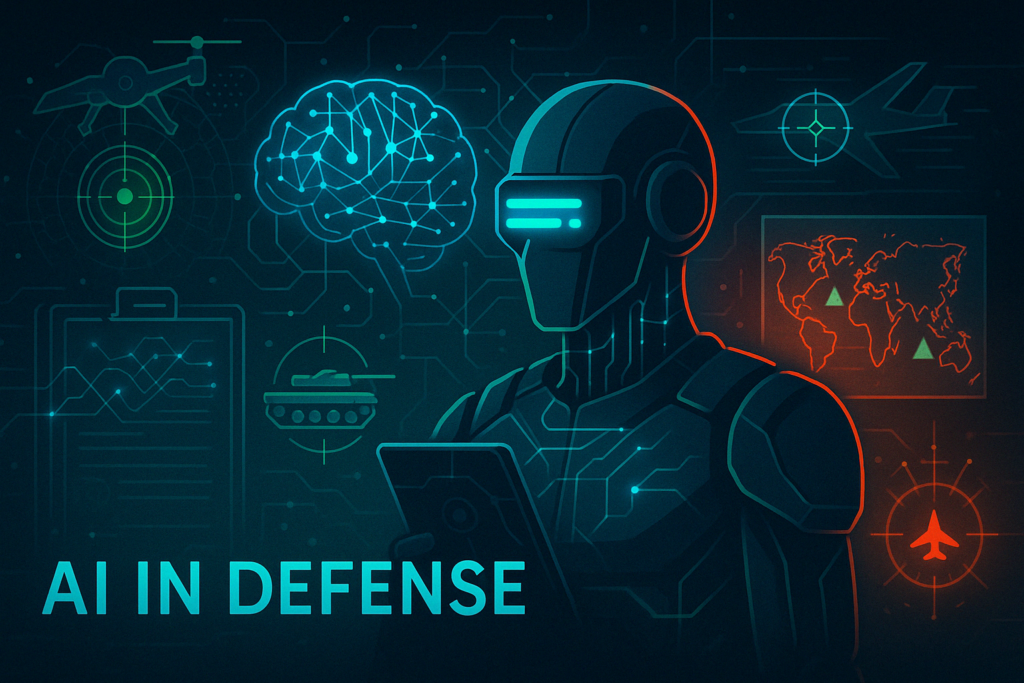Let’s be honest—when most people think of artificial intelligence, they picture voice assistants, targeted ads, or maybe a robot doing backflips. What they don’t imagine? AI plotting military strategy, controlling drones, or deciding whether to engage a hostile target. Yet, here we are. AI is no longer just a sci-fi trope. It’s becoming a real, high-stakes player in global defense—and it’s not just about robots with guns. From data analysis to battlefield tactics, artificial intelligence is transforming how modern militaries think, fight, and defend. So buckle up, because the era of AI warfare isn’t coming. It’s already here.
The Rise of AI Warfare: Smarter, Faster, Unnervingly Precise
Wars used to be won with sheer numbers, strategy, and luck. Now? It’s algorithms, real-time data, and machine learning models. AI warfare is a game-changer because it doesn’t just make things faster—it makes them smarter. Militaries can now analyze oceans of intelligence in seconds, identifying threats that human analysts might miss or be too slow to process.
Imagine scanning thousands of satellite images to spot a single hidden missile silo. AI can do that in a flash. No coffee breaks, no blinking. Just pure, tireless computing power.
But here’s the kicker: it’s not just about identifying targets—it’s also about anticipating moves. AI is being trained to simulate enemy behavior, predict future actions, and offer suggestions in real time. This isn’t science fiction. It’s already happening in some of the most advanced defense systems worldwide.
Autonomous Weapons: The Controversial (But Very Real) Next Step
Okay, let’s talk about the elephant—or rather, the drone—in the room: autonomous weapons. These are systems that can operate independently, without a human pulling the trigger. Yes, that sounds terrifying. And yes, it’s absolutely a real thing.
The military appeal is obvious: machines don’t get tired, scared, or emotional. They can be deployed in dangerous areas without risking human lives. Autonomous drones, underwater vehicles, and even ground robots are already being tested and, in some cases, deployed.
But it’s not all shiny metal and precision strikes. The ethical questions here are massive. Who’s responsible if an autonomous weapon makes a fatal mistake? Can we really trust a machine to distinguish between a combatant and a civilian? These are debates policymakers, ethicists, and defense officials are scrambling to answer—as the tech keeps marching forward.
AI Defense Technology: AI’s Quiet Power Behind the Scenes
Not all of AI’s military roles are flashy or lethal. Some of the most critical uses are tucked away behind secure doors in the back-end of defense systems.
Take cybersecurity. AI is now at the heart of defending national infrastructure from digital attacks. It can detect patterns of malicious behavior in real-time and respond far faster than any human could.
Or logistics. AI is optimizing supply chains, predicting equipment failures before they happen, and automating decision-making on a massive scale. Soldiers on the ground might not even know it, but the reason their gear shows up on time or their comms are secure? That’s defense technology powered by AI, quietly doing its job.
The Fine Line: Innovation vs. Regulation
The arms race isn’t just about who has the best AI—it’s also about who uses it right. Right now, there are no global rules specifically governing AI warfare. That’s scary. Because while AI offers huge advantages, the risks of misuse or error are just as high.
Some countries are pushing for international agreements to limit autonomous weapons or require human oversight. Others are full steam ahead, treating AI as the new nuclear edge. And that means we’re in a weird, wild west era of defense tech—where the rules haven’t caught up to the capabilities.
Why You Should Care (Even if You’re Not in the Military)
Here’s the bottom line: AI in military defense isn’t just about war—it’s about power, politics, and the kind of world we’re heading into. The technologies developed for defense often trickle down into civilian life (think GPS or the internet). So, as countries pour billions into AI warfare, we’re not just watching a shift in military strategy—we’re witnessing a transformation that could change everything from privacy to geopolitics.
And whether that future is smarter, safer, or scarier? That’s still up for grabs.
In the end, AI isn’t good or bad. It’s a tool. What matters is how we use it. And in the world of defense, that choice could mean the difference between peace and disaster. So the next time you hear someone say “robots are taking over,” just remember: in some parts of the world, they already kind of have.


